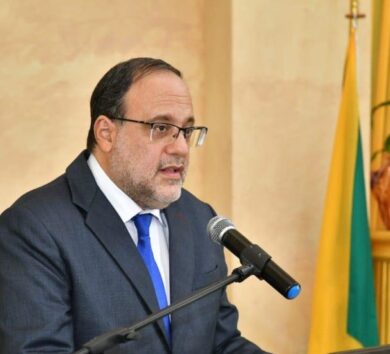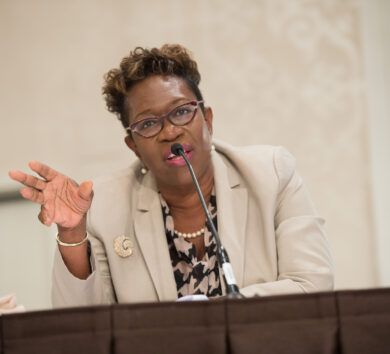

Governments across the Caribbean are being petitioned to replace monuments to persons who enabled slavery and colonialism with memorials in honour of their own citizens who stood against injustice.
Alando Terrelonge, state minister in the Ministry of Foreign Affairs and Foreign Trade, made the call while speaking on reparatory justice at the United Nations (UN) headquarters in New York on Thursday (June 1).
“It behooves us in the Caribbean to erect similar monuments, tear down those monuments of old, and erect new ones. Remove certain colonial names as well from our buildings and our streets and put new ones forward, so that we are not telling the stories of the oppressors, but telling the stories of our freedom fighters,” he said.
The state minister said that the removal of statues of enslavers and colonisers is one step that countries can make, while they await the legal framework and action by the UN to effect reparations.

“These are but some small measures that I would consider to be internal reparations,” he said, noting that reparation is a right for oppressed people.
He noted that the Jamaican Government, through an Act of Parliament, has removed the criminal records of several persons, who, during the periods of enslavement and colonialism, based on their activism, were regarded as transgressors of the law.
He said that other countries need to do what they can to give more credence to the cause for reparation.


Terrelonge, who has responsibility for Diaspora Affairs, used his time in New York to visit the Consul General and meet with Jamaicans, where he reaffirmed the Government’s commitment to working and engaging with overseas nationals.
In 2009, the Government established the National Commission on Reparations to recommend the form or forms that reparations may take and to receive testimony from the public and from experts, with the aim of guiding a national approach to reparations for descendants of enslaved people in Jamaica







Comments